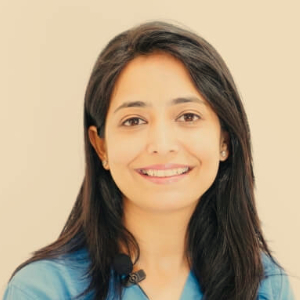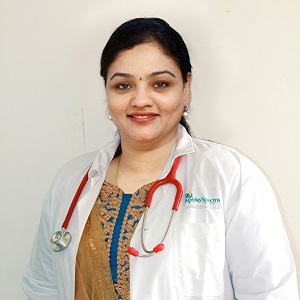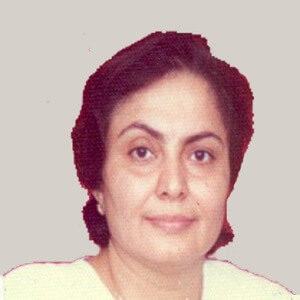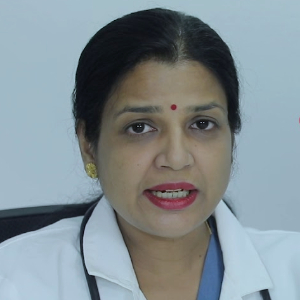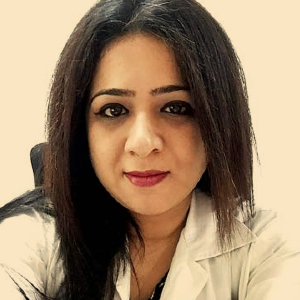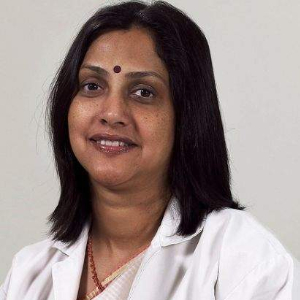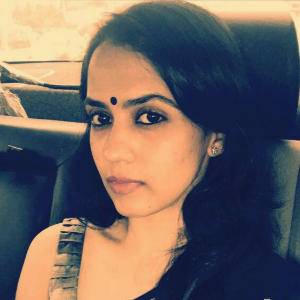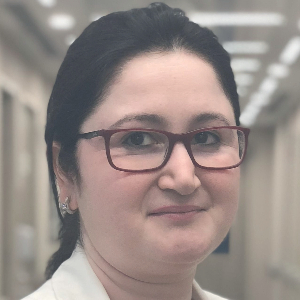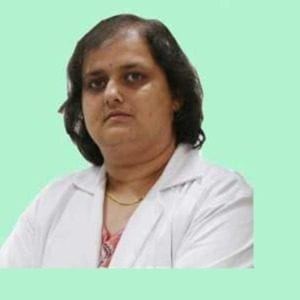Best Doctors in India for Hysteroscopy
- IVF Specialist, Gynaecologist & Obstetrician; Mumbai, India
- Over 10 years’ experience
Profile Highlights:
- Dr. Ritu Hinduja is a renowned Infertility expert in Mumbai with experience in the management of infertility and reproductive medicine and has training in all assisted reproduction techniques (ART).
- She holds a Masters degree in Reproductive Medicine and also has a Diploma in the same field from Keil University in Germany.
- Dr. Hinduja’s primary interest lies in the management of patients with fertility issues that include low ovarian reserve and preserving fertility for cancer patients and women who want to delay childbearing by freezing eggs.
- Obstetrician & Gynaecologist, Chennai, India
- Over 22 years’ experience
Profile Highlights:
- Dr. Meenakshi Sundaram is a gynecologist and obstetrician in Chennai and has over 22 years of experience in these fields.
- She completed her MBBS from the Medical University (TNMGRMU) and Completed her MD in Obstetrics and Gynecology (Obstetrics and Gynecology) Medical University (TNMGRMU).
- Some of the services provided by the doctor are: Uterine Fibroid Treatment, Uterine Artery Ligation
- Obstetrician & Gynaecologist, New Delhi, India
- Over 39 years’ experience
Profile Highlights:
- Dr. Madhu Roy is one of the leading Gynecologists and Obstetricians in India, practicing successfully for about 39 years. Dr. Roy practices at Indraprastha Apollo Hospital as a Senior Consultant.
- She assists patients by treating Uterine Fibroids, ovarian cysts, Endometriosis, Robotic Surgery, Subfertility, Pelvic Organ Prolapse, Gynecological Cancers, and any other conditions with her experience.
- Dr. Madhu Roy also provides counseling on contraception, medical termination of pregnancy, biopsies, laparoscopic surgery, and fertility preservation procedures.
- IVF Specialist & Gynaecologist, Bengaluru, India
- Over 15 years’ experience
Profile Highlights:
- Dr. Pallavi Prasad is a well-known Gynecologist in Bengaluru specializing in infertility and IVF.
- Dr. Prasad is a specialist in all kinds of Artificial Reproductive Techniques (ART) including IVF, ICSI, IUI, and IMSI. She also provides services for vitrification and cryopreservation.
- Dr. Pallavi Prasad has also written articles and papers on her field of expertise and has published several columns on infertility and ART in renowned journals and newspapers.
- IVF Specialist & Gynaecologist, Mumbai, India
- Over 24 years’ experience
Profile Highlights:
- Dr. Sulbha Arora is a well-known Gynecologist and Obstetrician and an Infertility Specialist in Mumbai currently working with Nova IVI Fertility.
- She has 24+ years of experience in IVF and Assisted Reproductive Techniques (ART) and has helped a large number of women enjoy the happiness of motherhood.
- Her primary area of focus includes fertility medicine, fertility preservation, third-party reproduction, and ultrasound.
- IVF Specialist & Gynaecologist, Bengaluru, India
- Over 25 years’ experience
Profile Highlights:
- Dr. Aviva Pinto Rodrigues is a Consultant in Gynecology and Infertility and has an extensive experience of over 2 decades in Reproductive Medicine and holds a Diploma in the field from the University of Kiel in Germany.
- Her expertise lies in all forms of ART including IVF, IUI, ICSI, IMSI, and also finds interest in the treatment of genital tuberculosis and reproductive endocrinology.
- Obstetrician & Gynaecologist, Gurugram, India
- Over 30 years’ experience
Profile Highlights:
- Dr. Anjali Kumar is a renowned gynecological endoscopic surgeon, who has done certificate courses as well as training at the World Association of Laparoscopic Surgeons and Ethicon Endosurgery Institute in New Delhi.
- Her technique was presented, published, and also accepted at the apex national conference at the Kumar’s Technique. She has also featured in several talk shows in different shows in multiple TV channels like NDTV, Doordarshan, The People, Khabrein Aaj Tak, etc.
- IVF Specialist & Gynaecologist, Mumbai, India
- Over 17 years’ experience
Profile Highlights:
- Dr. Sneha Sathe is a consultant gynecologist and infertility specialist in Mumbai and associated with Nova IVI Fertility.
- She has close to a decade of experience in the field of ART and Reproductive medicine and has achieved several successful pregnancies through IVF, IUI, ICSI, and other techniques of assisted reproduction.
- Dr. Sneha Sathe finds special interest in mild IVF and is also experienced in other aspects of gynecology such as management of PCOS, recurrent implantation failure, endometriosis, and failed IVF cycles.
- IVF Specialist & Gynaecologist, Gurugram, India
- Over 18 years' experience
Profile Highlights:
- Dr. Meenakshi Dua is a well-known gynecologist in India specializing in IVF and Infertility.
- She has an experience of 18+ years in the field of infertility treatment and has helped a large number of people with infertility issues.
- Dr. Meenakshi Dua is an expert in all kinds of Assisted Reproductive Technology and is highly trained in reproductive endocrinology, fetal Doppler, and advanced-level ultrasounds in gynecology and obstetrics.
- Obstetrician & Gynaecologist, New Delhi, India
- Over 20 years’ experience
Profile Highlights:
- A qualified and reputed medical practitioner Dr. Asawari Kesari Kapoor is among the celebrated gynecologists and obstetrician doctors in Delhi. With years of experience, she is proficient in identifying, diagnosing, and treating various health issues and problems related to her field.
- Dr. Asawari Kesari Kapoor completed her MBBS from the University of Mumbai, in 1999, and her DGO from the same university in 2002.
- She later got her diploma in Gynecology and Obstetrics from the College of Physicians and Surgeons in 2004. She is currently practicing as a Senior Consultant at Indraprastha Apollo Hospitals.
Best Hospitals in India for Hysteroscopy
Pushpawati Singhania Hospital & Research Institute, New Delhi
- City: New Delhi, India
Hospital Highlights:
- Established in 1996, Pushpawati Singhania Research Institute is one of the top hospitals in the NCR region, as well as one of the top facilities in India for gastroenterology. The hospital is one of South Asia’s first institutes in medical and surgical treatment for diseases related to digestion.
- The hospital is equipped with state-of-the art facilities coupled with the latest equipment as well as renowned consultants from various parts of India as well as other parts of the world.
W Pratiksha Hospital, Gurgaon
- City: Gurugram, India
Hospital Highlights:
- W Pratiksha Hospital, Gurugram, is one of the best hospitals in the NCR region. It is also a top hospital in India for IVF. Since its inception, the hospital has performed over 5500 successful IVFs. The hospital also specializes in gynecology.
- With over 20 years of experience in providing quality healthcare, the hospital is known as one of the most trusted and valued health providers in India.
- Equipped with world-class medical facilities and advanced technology, the hospital’s doctors and clinicians also have a track record of delivering excellent results. The hospital is also known for focusing on preventive well-being as much as on curative treatment.
- The hospital has earned the trust of its patients, by providing the best available treatments at affordable costs.
Narayana Superspeciality Hospital, Gurugram
- City: Gurugram, India
Hospital Highlights:
- Situated near DLF Cyber City, Gurugram, Narayana Superspecialty Hospital is one of the top medical facilities in the Delhi NCR region, catering to the needs of the people. Known for its commitment to quality medical care and patient service, the hospital is a state-of-the-art facility with planned and well-equipped sections, which includes a spacious OPD area as well as comfortable patient rooms.
- It is the closest super-specialty hospital from Indira Gandhi International Airport towards Gurugram, and also the nearest super specialty hospital from DLF Cyber City. It is also close to major residential areas in Gurugram.
- It is part of the renowned Narayana Health Group. Established in 2000, by Dr. Devi Shetty, a renowned cardiac surgeon, it has grown to be one fo India’s leading healthcare groups.
Sir Ganga Ram Hospital, New Delhi
- City: New Delhi, India
Hospital Highlights:
- Sir Ganga Ram Hospital, New Delhi is known to provide the latest medical procedures with the latest technology in all of its units.
- The hospital has a team of reputed doctors, nurses, and healthcare professionals that ensure that patients receive quality care at affordable costs.
- Staffed with a team of highly qualified doctors, dedicated nurses, and paramedical and non-medical staff, the hospital aims to lead in healthcare delivery, medical education, training, and research.
- As per the vision of the founder, the hospital also provides free treatment to the economically weaker sections of society.
- Sir Ganga Ram Hospital also provides training to young doctors under the Diplomate in National Board(DNB) program. The DNB program at the hospital was started in 1984 and it is known for currently running the maximum number of DNB specialties in the country. It also has the distinction of having the first bone bank in India.
CK Birla Hospital, Gurugram
- City: Gurugram, India
Hospital Highlights:
- The CK Birla Hospital in Gurugram is a NABH-accredited multi-specialty hospital.
- The hospital strives to increase the quality of healthcare by focusing on UK NHS nurse and midwife training requirements. Policies and practices derived from the National Institute for Health and Treatment Excellence (NICE) recommendations in the United Kingdom ensuring that a strong focus on safety, high-quality clinical care, and sanitation is maintained.
- The hospital’s cutting-edge technology and facilities allow for real-time communication and seamless collaboration among caregivers, ensuring accuracy and the best possible results. Those with foreign experience and accreditations make up part of the hospital’s team of clinicians.
KIMS Hospital, Hyderabad
- City: Hyderabad, India
Hospital Highlights:
- KIMS Hospital (a brand name of Krishna Institute of Medical Sciences) is one of the largest and best multi-speciality hospitals in Hyderabad. The hospital provides various treatments to an enormous number of patients.
- The hospital has a capacity of more than 3000 beds. KIMS Hospitals offers different healthcare services in more than 25 specialities and super specialities.
- The hospital is equipped with modern medical equipment and technology. It has robotic equipment to provide minimal invasive techniques for patients.
- The hospital is aimed at providing world-class healthcare facilities and services at an affordable cost for patients.
- The various specialities and departments of the hospital include neurosciences, gastroenterology & hepatology, robotic science, reproductive sciences, dental science, oncological sciences, organ transplantation, heart and lung transplantation and mother and child care.
Fortis Hospital, Shalimar Bagh
- City: New Delhi, India
Hospital Highlights:
- Fortis Hospital in Shalimar Bagh is a multi-super specialty hospital that strives to provide world-class patient care by leaving no stone unturned.
- Fortis, Shalimar Bagh, with 262 beds and a 7.34-acre footprint, provides the best level of medical care through its team of doctors, nurses, technicians, and management professionals.
Reliance Hospital, Mumbai
- City: Mumbai, India
Hospital Highlights:
- Reliance Hospital is one of the best super-specialty care hospitals in Navi Mumbai.
- The main purpose of this hospital is to become a trustworthy place for the best health and hope for society. The hospital is well connected to the suburbs of Mumbai and Navi Mumbai.
- The hospital has various specialty departments, viz., Accident & Emergency, Anesthesiology, Dental Services, Dermatology, Diabetology, Dietetics Nutrition, Endocrinology, ENT, Gastroenterology, General Surgery, Gynaecology And Obstetrics, Hepato Pancreato Biliary Surgery, Infectious Disease, Internal Medicine, Interventional Radiology, Laboratory Medicine, Minimal Access Laparoscopic Surgery, Nephrology, Neurosciences, Opthalmology, Orthopaedics, Paediatrics, Pain Management Palliative Care, Physical Medicine Rehabilitation, Plastic And Reconstructive Surgery, Psychiatry, Pulmonary Medicine, Radiology, Rheumatology, Transplant, Urology Andrology, Vascular Surgery
Lilavati Hospital & Research Centre, Mumbai
- City: Mumbai, India
Hospital Highlights:
- Lilavati Hospital & Research Centre is India’s premier multi-speciality tertiary care hospital and has been recognised as a global medical excellence centre.
- Lilavati Hospital & Research Centre has built an unrivalled level of trust with its patients over the years, thanks to a solid foundation that comprises cutting-edge facilities, the best medical competence, research, education, and charity endeavours.
- The hospital is quite proud of the fact that it now serves patients from all kinds of backgrounds, not just from the United States but from all around the world.
- The hospital has a total of 323 beds, one of the largest Intensive Care Units (ICUs), 12 Operation Theatres with modern amenities, over 300 consultants, and almost 1,800 personnel.
Venkateshwar Hospital, Dwarka, New Delhi
- City: New Delhi, India
Hospital Highlights:
- State-of-the-art technology and devoted healthcare professionals have been brought together under one roof at Venkateshwar Hospital to provide genuine medical care. The hospital’s professionals work together as a team to deliver the best possible treatment to their patients, using the most sophisticated equipment and information technology.
- Venkateshwar Hospital’s mission is to attain global excellence in healthcare by employing evidence-based, ethical clinical practices and cutting-edge technology by a team of highly skilled experts.
Hysteroscopy
Hysteroscopy is a diagnostic procedure that involves the insertion of a device of smaller diameter into your uterus. The device has a small camera at the end and a light that allows your doctor to view inside your uterus. Usually used for diagnostic or surgical purposes, your doctor may recommend the procedure for several situations. If you are suffering from severe cramps or your doctor needs to evaluate your reproductive health, he or she may recommend this procedure. It will give them the overall condition of your uterus & cervix while allowing them to figure out the cause of the problem.
Uses of Hysteroscopy
Your doctor may use Hysteroscopy :
- To find out any malformations in the uterus
- To easily remove any polyps and fibroids
- Immediately before dilation and the curettage procedure
- For visual confirmation of the results of another test
- Along with a laparoscopic procedure
Why do you need Hysteroscopy?
During the Hysteroscopy procedure, the hysteroscope inserted into your vagina allows the doctor to see inside the uterus. If the doctor finds anything abnormal or the condition is not as expected, he or she can later take a sample for testing. The most common reasons for Hysteroscopy are heavy flow during the menstrual cycle or bleeding during the normal days between consecutive two cycles. You need to have Hysteroscopy if:
- There’s bleeding even after menopause
- Your doctor wants a biopsy (a small tissue sample) of your uterus lining
- Your IUD or Intrauterine Device is out of place
- You show abnormal results for Pap test
- Fibroids, scarring, or polyps are present in your uterus
- You are undergoing sterilization procedure in the form of permanent birth control
- You had one or more than one miscarriage and are having problems conceiving.
Procedure
Your doctor will ask you to stay in the same position as that for a gynecological examination.
During the procedure
The doctor will spread your cervix with the help of a tool known as a speculum. It happens similar to that of a gynecological examination. Next, the doctor will insert the hysteroscope through the opening of your vagina. He or she will continue to move it through the cervix and into the uterus The light and camera of the hysteroscope will allow him or her to see the fallopian tubes and the uterus. Because of this, they can easily diagnose any problems or perform the required surgical procedures.
If you are having the procedure for surgery, your doctor will also put the surgical devices through the tube of the hysteroscope for performing the surgery. Although the procedure is painless, you may suffer from cramps to some extent. Your doctor may ask you to take a sedative before Hysteroscopy so that you can relax during the procedure. The purpose of the procedure will determine the amount of anesthesia used.
Your doctor will perform the procedure in his or her office or the hospital. The time for the procedure may vary from 10 minutes to half an hour, depending on what the doctor is performing. If it is for diagnostic purposes, the doctor will perform the procedure in his or her office with regional or local anesthesia. He or she can also remove small polyps with this. When your doctor is using the procedure in conjunction with a surgical procedure, he or she may perform it in hospital. Also, they will then give general anesthesia instead of local anesthesia.
After the procedure
You may be able to drink or eat immediately after the procedure. Your doctor will allow you to leave within an hour if he or she used local anesthesia and performed the procedure in his or her office. However, you won’t be able to go if your doctor used regional anesthesia until the effects disappear. The time taken for the effects to disappear depends on the amount of anesthesia given. Also, if your doctor used general anesthesia, you can only go home after a few hours. If you reacted to anesthesia in the past, your doctor will ask you to stay in the hospital overnight.
Outcomes
The time taken for recovery depends on the purpose of the procedure. However, you may experience some symptoms after the procedure like:
- Slight bleeding or even spotting for a day or two.
- Mild nausea
- Cramping
- Dizziness or lightheadedness
- Shoulder pain (when the doctor uses carbon dioxide gas).
Your doctor will prescribe you some medications for pain for your easy recovery. If your doctor performed surgery, then you will need to take rest before you return to your normal routine. For faster recovery, you must follow every instruction given by your doctor.
Risks
Similar to any other media all procedure, Hysteroscopy also has some complications associated with it. They may be:
- Infection
- Damage to the surrounding organs like bowel, bladder, or ovaries
- Problems due to anesthesia
- Problems with fluid or gas from the uterus
- Pelvic inflammatory disease
- In rare cases, tearing or even damage to the cervix.
You may need to see your doctor immediately if you are suffering from severe abdominal pain, fever or heavy bleeding after having Hysteroscopy.
Outlook
Your doctor may recommend this procedure for varying reasons. These may be for having a closer look or for a minor surgery that will help to ensure good health and well-being in the long term. You may ask questions to your doctor at any time if you have or you need to. Although the risks associated with Hysteroscopy are low, you must discuss everything with your doctor before the procedure. Recovery is quick and you won’t experience any long-lasting effects. However, you may experience some in the initial days after the procedure.

